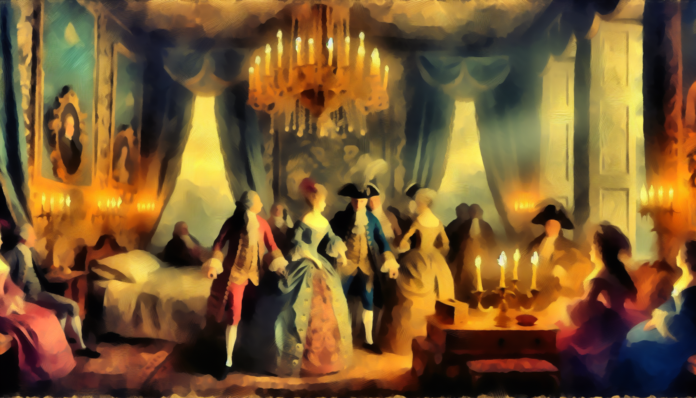Introduction
In the late 17th century, a scandal erupted in the court of England that would change the perception of monarchy and morality forever. King Charles II, known for his charm and charisma, was at the center of a series of romantic entanglements that played out not only in the royal court but also in the public eye. His diaries provided a fascinating glimpse into his affairs, revealing a world where passion and politics intermingled. At a time when societal norms were largely dictated by strict moral codes, Charles II’s escapades challenged the very foundations of royal decorum and set the stage for discussions about love, power, and privacy.
The Scandal
Charles II, often referred to as the “Merry Monarch,” ascended to the throne in 1660 after years of Commonwealth rule. His diary, filled with accounts of lavish parties and romantic affairs, showcased his numerous relationships with women such as Nell Gwynne, Lady Castlemaine, and others.
Key Events
-
Betrayal and Betrayal Gossip: Charles’ affair with Lady Castlemaine was publicized through whispers and scandalous pamphlets of the time. The king’s open affection for her, despite being married to Catherine of Braganza, sent shockwaves through a society that valued honor.
- Public Revelations: A notorious incident occurred in 1668 when a group of pamphleteers began printing satirical ballads that mocked the king’s infidelities. One popular rhyme, which circulated widely, humorously implied that “the king’s affairs were more plentiful than the stars.”
Quotes and Perspectives
“Truth is the privilege of the King,” Charles noted, highlighting his belief in his unique standing. Historians assert that this quote reveals not only his flippancy towards his actions but also the lax moral standards he set within the court.
Moral and Cultural Analysis
Societal Reaction
The response to Charles II’s affairs was mixed. While the upper echelons of society often turned a blind eye, viewing his escapades as a normal aspect of royal life, the common people harbored a mix of resentment and admiration. Political dissenters used his infidelities to fuel accusations of immorality, positing that a king without virtue could not rule effectively.
Consequences
-
Political Ramifications: His indiscretions had tangible political consequences. For instance, the resentment towards Lady Castlemaine culminated in a political rift, with factions forming either in support of or against the established monarchy.
- The Church’s Stance: Religious authorities condemned his behavior, viewing his actions as a direct affront to societal standards of decency.
Modern Perspective
Fast forward to the present day, and reactions to Charles II’s scandals would still be complex, albeit shaped by different values. Society today advocates for greater personal freedom and the right to privacy, contrasting sharply with the judgment and moralistic stance of the past. The advent of social media would likely amplify such a scandal, turning it into a global spectacle, while discussions around consent and relationships would bring a different lens to evaluating Charles’ actions.
Affairs at the highest levels of leadership now invite discussions about transparency, accountability, and the implications of such actions on governance, reflecting how norms have significantly evolved. The way we view love, power, and personal relationships has matured, fostering an environment where dialogue is prioritized rather than scandalous gossip.
By delving into the passionate world of King Charles II’s diaries, we uncover not just the king’s romantic affairs but a reflection of an era grappling with the contradictions of power, love, and morality.

